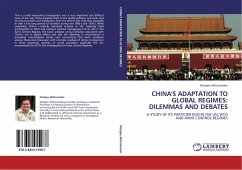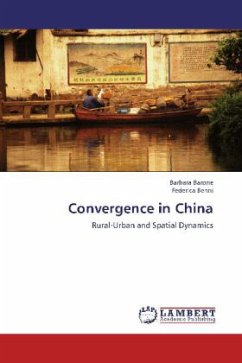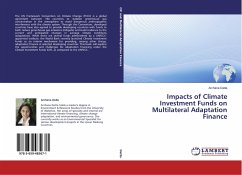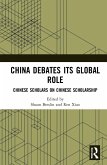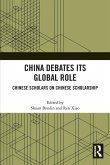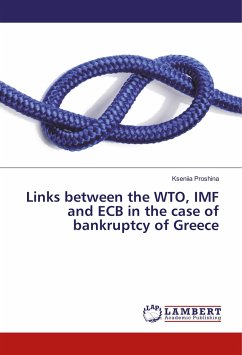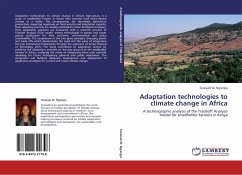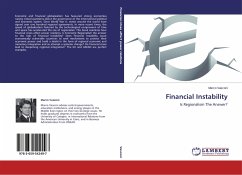This is a well researched investigation into a very important but difficult issue of the way China adapted itself to the global political, economic and security processes and institutions after the end of the Cold War especially in view of its long period of isolation during the 1960 s and 1970 s. While examining China s carefully operated activism in UN, relatively bold participation in WTO and cautious political management of its role in the Arms Control Regime, the book analyses various debates associated with China s rise in global affairs and also the dilemmas it encountered in accepting international norms and conventions. This work combines serious theoretical discussion with concrete analysis of China s integration in three important spheres of world processes: politically the UN, economically the WTO and strategically the Arms Control Regimes.
Bitte wählen Sie Ihr Anliegen aus.
Rechnungen
Retourenschein anfordern
Bestellstatus
Storno

